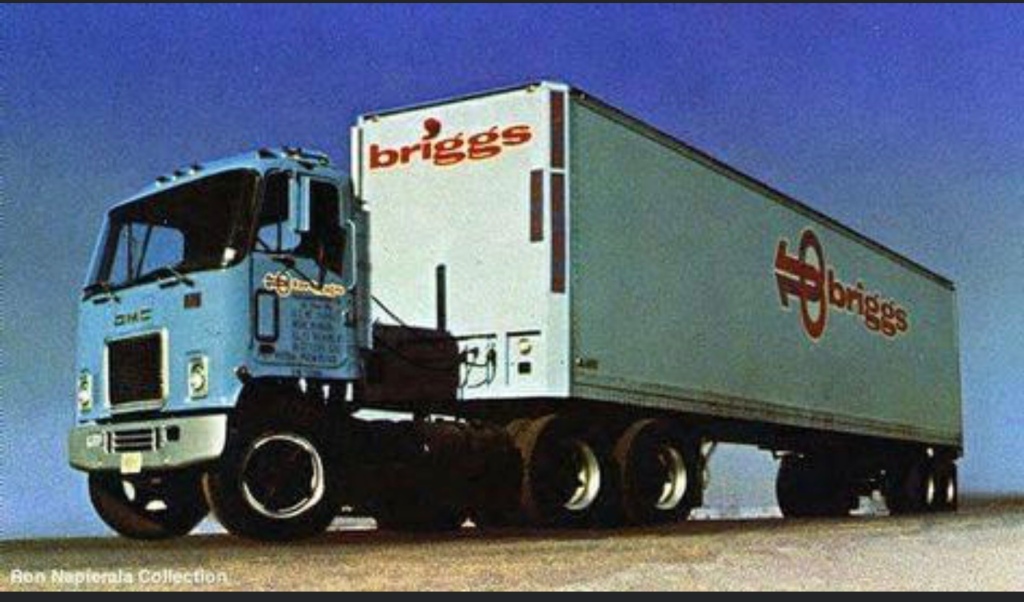The 1980’s: Fast Growth Leading To Shudown
When deregulation of the trucking industry took effect it meant monumental changes for established carriers like Briggs Transportation. Immediately the amounts on the books from operating authority had to be written off as worthless. This was due to the easing of entry given to new entrants in the industry. Now, instead of applying for permission from the ICC to operate prized routes, anyone with enough money to purchase a truck, get insurance and get freight could transport goods anywhere over any route. In many cases, just by showing a loss on the books, triggered banks to call loans due on demand. A few trucking companies gave up and shutdown within months, throwing thousands out of work, used equipment filling up sales lots and freight to be distributed among new carriers and established ones expanding to new areas. With more carriers in a particular ares chasing the same amount of freight, it depressed rates and caused increased costs, which trucking companies could ill afford with losses already being taken.

Like many other carriers, Briggs chose expansion. Beginning in 1980, Briggs began a major expansion program that grew the company from a nine-state Midwest region with 21 terminals to 63 terminals in 19 states. Briggs had plans to expand to as many as 35 states! It would be quite a task to pull off, considering a slowing economy, increased insurance costs, rate cutting, etc.
From 1980 to 1982 terminals were opened in many locations and in new states like Ohio, Tennessee, Kansas, Oklahoma, and Texas. New equipment continued to be ordered and delivered as the company needed them for the newly opened areas. Looses were announced every quarter to the point where by November 1982 the company had three and a half years of losses. At that point the Second Northwestern National Bank of Minneapolis informed Briggs that it was in default on $3.9 million in loans and faced repossession of some trucks. The losses had eroded the net worth of the company and pushed the company into default of its loan agreements requiring certain ratios of liabilities and debt to net worth be maintained.
Briggs sued the bank and took the matter to court, disputing some of the terms of the loan agreement. Although the judge denied the bank its demand that the company be forced into bankruptcy, the judge did order Briggs to resume paying the loans. A $71,500 loan payment was due the next day and Briggs did not have the money, so the company filed for reorganization under bankruptcy protection anyway. Within hours of that filing, 800 employees were let go, 35 of 56 terminals closed and the company vowed to stay in business by retrenching back to its roots. Briggs tried to get its union employees to agree to reduced wages and sought court orders to be able to terminate the union contracts. Picket lines went up in protest but eventually Briggs shut down completely.
Thus the long story of Briggs Transportation came to an end. Another fallen flag, another memory.
Make a one-time donation
Make a monthly donation
Make a yearly donation
Choose an amount
Or enter a custom amount
Your contribution is appreciated.
Your contribution is appreciated.
Your contribution is appreciated.
DonateDonate monthlyDonate yearly
I am one of H.D.’s granddaughters and one of my sons found this site. However, in Part 4 when you talk about my grandfather’s death, you wrote Henry D. Briggs. His first name was Herman, which you recorded correctly in Part 1. You need to change that.
My father was Tracy Briggs and I was born in St. Paul, MN. I remember a model Briggs Transportation truck in my dad’s office that was big enough that I could fit in the trailer. I was small.
We moved to La Jolla, California in 1958 and that ended my father’s connection with the company. My grandfather visited us regularly, usually during the harness horse racing season, and he would go to the Del Mar track to watch them doing their workouts. He raised trotters and pacers as a hobby.
This is a very nice history of the company. You just need to correct my grandfather’s name in the part about his passing.
LikeLike
Thank you! It has been corrected!
LikeLike
My Dad was one of those union drivers who lost his job in January of 1983. He did take a paycut to help keep the company afloat. I remember he got a settlement check in the mail sometime in the early 90s which was a fraction of what he was owed.
LikeLike
I want to thank you for various bits of history on a GREAT company! I went to work for Briggs in Winona in the Spring of 1971, when I got out of the Army. I stayed with them for 12 years working in various management positions, and I left only when it became obvious they were not going to survive deregulation. Briggs was a great company to work for and I would never have left them – except for that dam- regulation! They were reknown for being good teachers; the standing joke in the industry was for a competitor to go hire the person (position) from Briggs and offer him more money. You can leave that last bit out. Thank you…
LikeLike